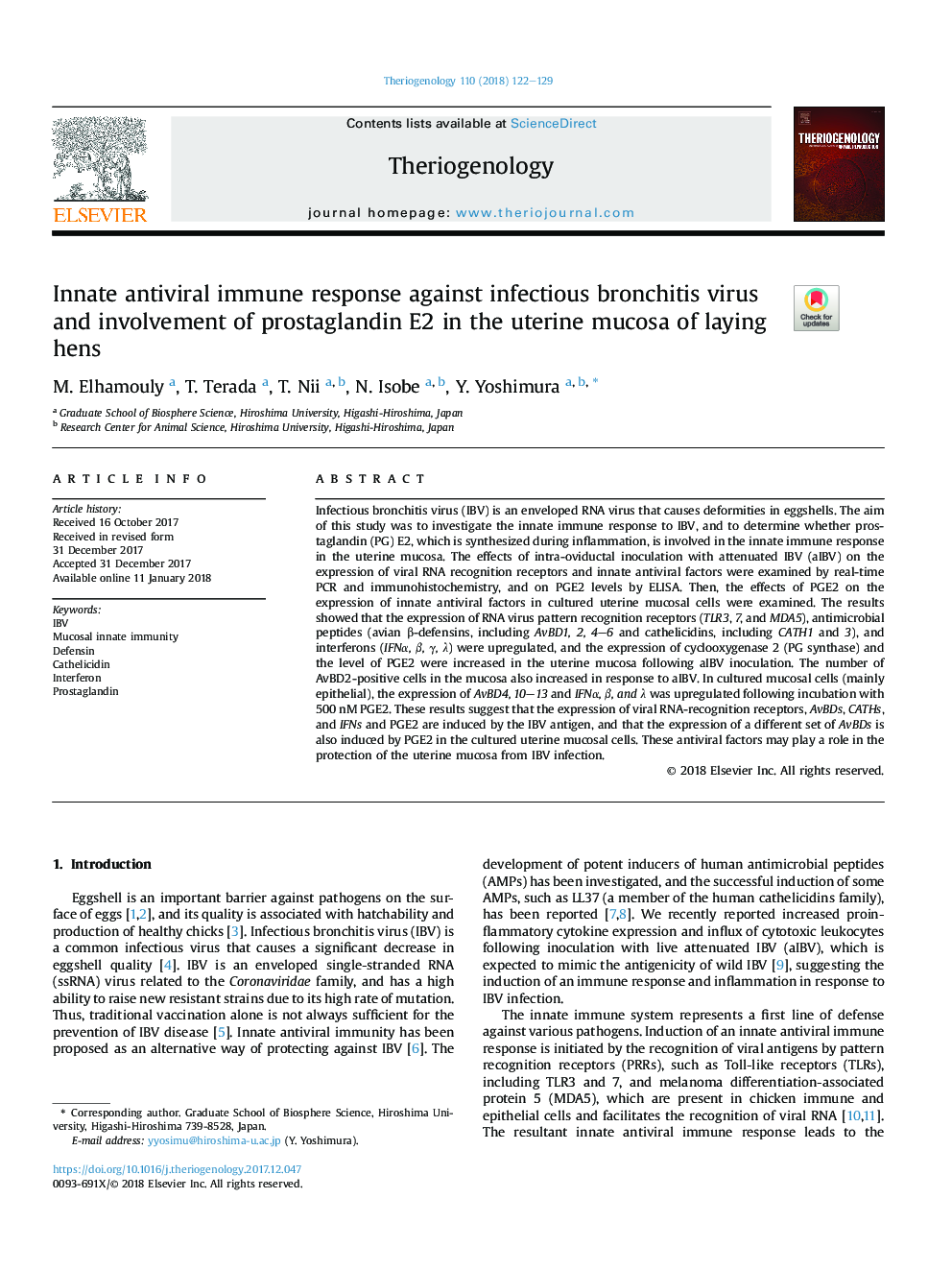| Article ID | Journal | Published Year | Pages | File Type |
|---|---|---|---|---|
| 8427461 | Theriogenology | 2018 | 8 Pages |
Abstract
Infectious bronchitis virus (IBV) is an enveloped RNA virus that causes deformities in eggshells. The aim of this study was to investigate the innate immune response to IBV, and to determine whether prostaglandin (PG) E2, which is synthesized during inflammation, is involved in the innate immune response in the uterine mucosa. The effects of intra-oviductal inoculation with attenuated IBV (aIBV) on the expression of viral RNA recognition receptors and innate antiviral factors were examined by real-time PCR and immunohistochemistry, and on PGE2 levels by ELISA. Then, the effects of PGE2 on the expression of innate antiviral factors in cultured uterine mucosal cells were examined. The results showed that the expression of RNA virus pattern recognition receptors (TLR3, 7, and MDA5), antimicrobial peptides (avian β-defensins, including AvBD1, 2, 4-6 and cathelicidins, including CATH1 and 3), and interferons (IFNα, β, γ, λ) were upregulated, and the expression of cyclooxygenase 2 (PG synthase) and the level of PGE2 were increased in the uterine mucosa following aIBV inoculation. The number of AvBD2-positive cells in the mucosa also increased in response to aIBV. In cultured mucosal cells (mainly epithelial), the expression of AvBD4, 10-13 and IFNα, β, and λ was upregulated following incubation with 500â¯nM PGE2. These results suggest that the expression of viral RNA-recognition receptors, AvBDs, CATHs, and IFNs and PGE2 are induced by the IBV antigen, and that the expression of a different set of AvBDs is also induced by PGE2 in the cultured uterine mucosal cells. These antiviral factors may play a role in the protection of the uterine mucosa from IBV infection.
Related Topics
Life Sciences
Agricultural and Biological Sciences
Animal Science and Zoology
Authors
M. Elhamouly, T. Terada, T. Nii, N. Isobe, Y. Yoshimura,
